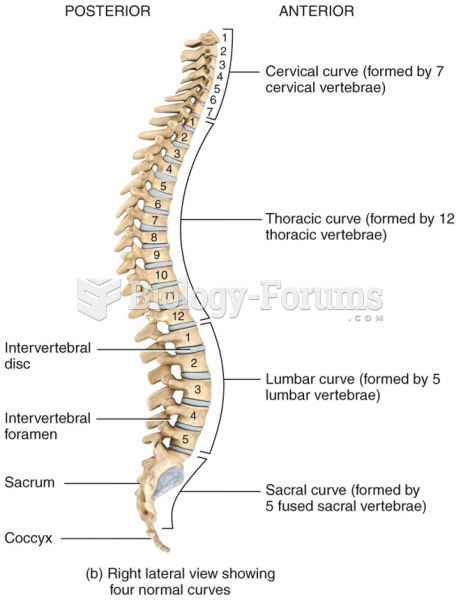|
|
|
The term bacteria was devised in the 19th century by German biologist Ferdinand Cohn. He based it on the Greek word "bakterion" meaning a small rod or staff. Cohn is considered to be the father of modern bacteriology.
In 1864, the first barbiturate (barbituric acid) was synthesized.
Critical care patients are twice as likely to receive the wrong medication. Of these errors, 20% are life-threatening, and 42% require additional life-sustaining treatments.
Warfarin was developed as a consequence of the study of a strange bleeding disorder that suddenly occurred in cattle on the northern prairies of the United States in the early 1900s.
Human neurons are so small that they require a microscope in order to be seen. However, some neurons can be up to 3 feet long, such as those that extend from the spinal cord to the toes.
 If the needle drops 1 or 2 inches Hg from the normal reading, one of the engine valves is burned or ...
If the needle drops 1 or 2 inches Hg from the normal reading, one of the engine valves is burned or ...
 Effects of septal defects: (A) normal shunt; no cyanosis; (B) increased pressure in right ventricle; ...
Effects of septal defects: (A) normal shunt; no cyanosis; (B) increased pressure in right ventricle; ...





